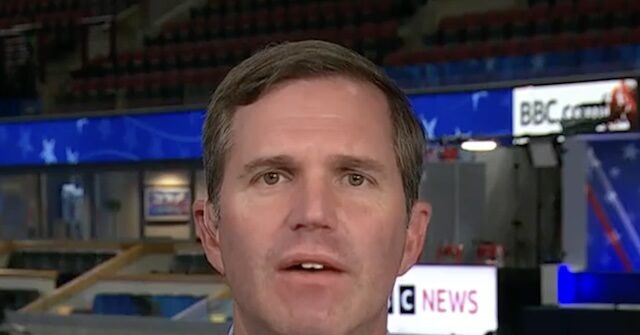Governor Andy Beshear of Kentucky criticized both former President Donald Trump and his running mate, Senator JD Vance, for perpetuating misinformation about critical issues, including the legitimacy of the last presidential election. Appearing on ABC’s “This Week,” Beshear expressed disbelief at the extent of the lies told by Trump and Vance, particularly regarding their refusal to acknowledge Trump’s electoral loss. He emphasized the importance of having leaders who accept democratic principles and recognize the reality of past elections. Beshear believes that politicians should prioritize honesty and transparency, particularly in a democratic society where public trust is essential.
Beshear pointed out the dangers of misinformation, particularly in terms of its impact on disaster response. He recounted Kentucky’s experiences with significant natural disasters, such as tornadoes and floods, highlighting that in those critical times, he did not have to deal with the extensive misinformation that Trump currently disseminates. He argued that such false narratives can be detrimental, leading people to misinterpret the assistance available to them in times of need. For instance, if victims of disasters believe that only minimal aid exists, they may decide against applying for more substantial assistance that they are entitled to, ultimately harming their chances of recovery.
The governor further characterized Trump’s portrayal of disaster assistance as dangerously misleading, especially the claim that merely $750 was available for victims. He warned that such statements could discourage individuals from seeking the full amount of disaster relief, which can exceed $40,000. Beshear expressed a strong belief that leaders should prioritize the welfare of affected individuals over political posturing. He criticized the tendency to politicize essential services and assistance, asserting that true leadership is defined by the ability to unite people during crises rather than propagate falsehoods for personal or political gain.
Beshear’s comments reflect a broader frustration with a political environment where misinformation can manipulate public perceptions and exacerbate societal divisions. He conveyed a sense of urgency regarding the need for honest discourse, particularly in the context of governance and community rebuilding after disasters. The governor underscored the responsibility of leaders to uphold the values of democracy by being truthful and transparent, particularly in their dealings with constituents during trying times. His remarks serve as a call to action for politicians to prioritize truthfulness and empathy over contentious rhetoric.
In the interview, Beshear also painted a stark contrast between his approach to leadership and that of Trump and Vance. He positioned himself as a leader who prioritizes constituents’ needs and fosters trust through transparent communication. As someone who has navigated the challenges of leading during severe weather events, Beshear believes that empathy and truthfulness should be the foundation of political discourse. By emphasizing these values, he seeks to inspire others in leadership positions to reject lies in favor of building a more informed and resilient society.
Ultimately, Beshear’s criticism of Trump and Vance highlights a critical moment in American politics, where the implications of leadership choices extend far beyond individual politicians to impact communities nationwide. His commitment to truth in governance signifies a push for revitalization in political integrity, especially as the nation prepares for future elections. The need for authentic leadership that places community well-being above political agendas remains paramount as Americans seek reassurance in the capabilities of their leaders to guide them through both political and natural storms.

